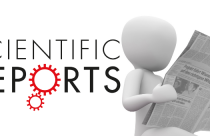Chan Zuckerberg Biohub: A Bold Initiative to Cure Every Disease

The Chan Zuckerberg Biohub is built on a radical idea of curing every disease in our children’s lifetime. In order to do this, the Biohub has partnered with three leading research universities in California: Stanford University, the University of California Berkley, and the University of California San Francisco. The Biohub’s environment fosters intellectual freedom and collaboration and has a mission to invent the future of life science research. The Biohub is supported by the Chan Zuckerberg Initiative led by Facebook founder Mark Zuckerberg and his pediatrician wife, Priscilla Chan.
The Chan Zuckerberg Biohub has recently given a total of $50 million to support 47 investigators, who are working on diverse topics ranging from geomicrobiology to biosensors to the invention of low-cost lab equipment. Unlike typical grants, these awards favored researchers with bold new ideas and impressive track records, even if the applicants did not have preliminary data. Grant reviewers focused on supporting ideas that could lead to new technologies or improve our understanding of the basic science of diseases. The awards also allowed researchers to switch between areas of focus, which is generally not supported by other funding sources. Jure Leskovec, for example, is a computer scientist who has been working on analyzing social networks. He argued that his experience with, and approach to, data analysis could help us understand the complex interactions between genes and proteins during illness or when a patient is taking medication. This convinced the grant reviewers to agree to his research.
Apart from the Biohub Investigator Program, there are also two large-scale collaborative projects underway: the Infectious Disease Initiative and the Cell Atlas. The Infectious Disease Initiative seeks to find more effective ways to combat the spread of emerging diseases like the Zika virus and SARS. Scientists working on this initiative focus on developing technologies for the diagnosis of these diseases, developing treatments, finding ways to prevent infection, and developing more effective ways to respond rapidly when new disease threats emerge. The Cell Atlas is an international collaborative effort to identify and catalog every single cell type in the human body. The atlas will be made freely available and should help us understand some of the current mysteries in cell biology.
Investigators supported by the Biohub Investigator Program have agreed to make their research available on preprint servers. Making their draft manuscripts publicly accessible should help the wider scientific community to begin building on their findings even before the official publication of the associated journal articles. As part of its commitment to open science, the Biohub has plans to create shared technology platforms to enable scientists in California’s Bay Area to further their research and support collaboration.









